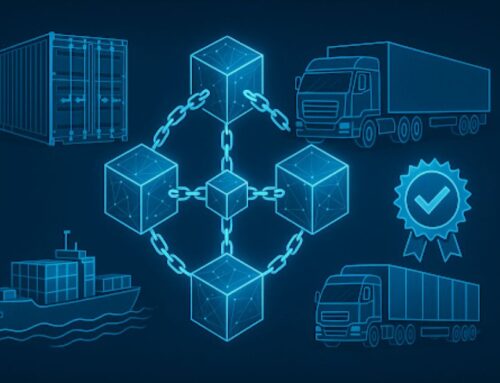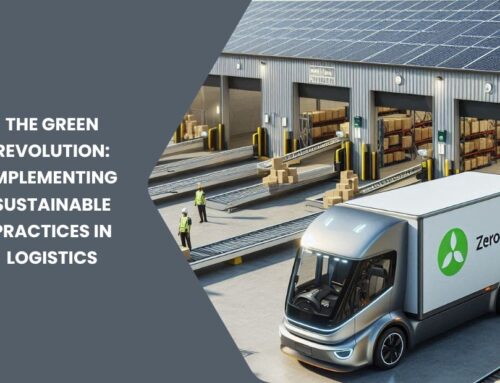Logistics is the backbone of e-commerce, serving as the critical link between online retailers and their customers. In a market where customer expectations for speed, accuracy, and reliability are higher than ever, the efficiency of logistics operations can make or break an e-commerce business. This article explores the importance of logistics in e-commerce, highlighting the key areas where effective logistics strategies contribute to the overall success of online retail businesses.
The Role of Logistics in Customer Satisfaction
Customer satisfaction in e-commerce hinges on the timely and accurate delivery of products. Logistics plays a central role in this process, ensuring that orders are picked, packed, and shipped efficiently. A seamless logistics operation can lead to quicker delivery times, which is a significant factor in customer satisfaction. Many e-commerce giants, like Amazon, have set the standard with same-day or next-day delivery options, making logistics an essential competitive differentiator.
Moreover, the return process is another critical aspect of logistics that impacts customer satisfaction. A streamlined, hassle-free return process can enhance the customer experience, leading to higher repeat purchase rates and positive reviews. Conversely, poor logistics can result in delayed deliveries, lost packages, and complicated return processes, all of which can harm a brand’s reputation and drive customers away.
Cost Efficiency Through Optimized Logistics
Effective logistics management is also crucial for controlling costs in e-commerce. Shipping, warehousing, and inventory management can represent significant expenses for online retailers. By optimizing these processes, businesses can reduce operational costs and increase profit margins. For instance, adopting strategies like just-in-time inventory, which minimizes the need for large warehouse spaces, or utilizing drop-shipping methods, can drastically cut down on storage and handling costs.
Furthermore, leveraging advanced logistics technologies such as automated warehousing, real-time tracking, and predictive analytics can streamline operations, reducing labor costs and improving order accuracy. These efficiencies are not just about cost-saving but also about maintaining the competitive edge in a market where pricing pressures are intense.
The Impact of Logistics on Delivery Speed
Speed of delivery has become a critical factor in the success of e-commerce businesses. Customers increasingly expect rapid delivery times, often within the same day or the next day after placing an order. Logistics is the driving force behind meeting these expectations. Effective logistics strategies, such as using multiple distribution centers strategically located near key customer bases, can significantly reduce shipping times.
The use of advanced technologies like route optimization software and real-time tracking can further enhance delivery speed by ensuring that drivers take the most efficient routes and that customers are kept informed of their delivery status. These improvements satisfy customers and reduce the number of failed deliveries, which can be costly for businesses.
Inventory Management and Its Role in E-commerce Logistics
Inventory management is another critical component of e-commerce logistics. Maintaining the right balance of stock is crucial; too much inventory ties up capital and increases storage costs, while too little can lead to stockouts and lost sales. Effective logistics strategies help e-commerce businesses manage their inventory more efficiently, ensuring that products are available when customers want them without overstocking.
Technology plays a significant role in modern inventory management. Tools such as inventory management software can provide real-time data on stock levels, helping businesses make informed decisions about reordering and stock levels. Additionally, predictive analytics can forecast demand based on historical data and trends, allowing businesses to anticipate customer needs and manage their inventory more effectively.
Scalability: Managing Growth with Effective Logistics
As e-commerce businesses grow, so do their logistics needs. Scalability is essential for managing this growth effectively. A logistics system that works well for a small business may not be sufficient as the business expands. To manage increased order volumes, more complex shipping requirements, and broader geographical reach, businesses need to invest in scalable logistics solutions.
Scalable logistics solutions might include outsourcing logistics to third-party providers (3PLs), expanding warehousing capabilities, or adopting new technologies that can handle increased volumes efficiently. By planning for scalability, businesses can avoid the pitfalls of overloading their logistics systems, which can lead to delays, errors, and dissatisfied customers.
The Strategic Advantage of Advanced Logistics Technology
Technology is revolutionizing logistics in e-commerce, providing businesses with tools that offer a significant strategic advantage. From automated warehouses and robotics to AI-driven analytics and blockchain, advanced logistics technology can enhance efficiency, accuracy, and transparency throughout the supply chain.
For instance, AI can optimize delivery routes, reducing fuel consumption and delivery times, while blockchain technology can provide secure, transparent tracking of goods from manufacturer to customer, reducing fraud and improving trust. E-commerce businesses that invest in these technologies can differentiate themselves in a crowded market, offering superior service that attracts and retains customers.
Environmental Sustainability in E-commerce Logistics
Sustainability is becoming increasingly important in e-commerce logistics. Consumers are more aware of the environmental impact of their purchases, and many prefer to buy from companies that prioritize sustainability. E-commerce businesses can address this concern by adopting greener logistics practices, such as using electric vehicles for delivery, optimizing packaging to reduce waste, and sourcing products from environmentally responsible suppliers.
Incorporating sustainability into logistics not only appeals to eco-conscious consumers but can also lead to cost savings. For example, optimizing delivery routes to reduce fuel consumption lowers carbon emissions and cuts transportation costs. Businesses that successfully integrate sustainability into their logistics operations can enhance their brand reputation and build stronger relationships with customers.
In Conclusion
Logistics is undeniably crucial to the success of e-commerce businesses. From ensuring customer satisfaction and managing costs to enabling rapid delivery and supporting scalability, effective logistics is the foundation of a successful online retail operation. As e-commerce continues to grow and evolve, businesses that invest in advanced logistics technologies, prioritize sustainability, and optimize their supply chain operations will be well-positioned to thrive in a competitive marketplace. In the end, logistics is not just about moving products from point A to point B; it’s about creating a seamless, efficient, and customer-focused operation that drives business success.








